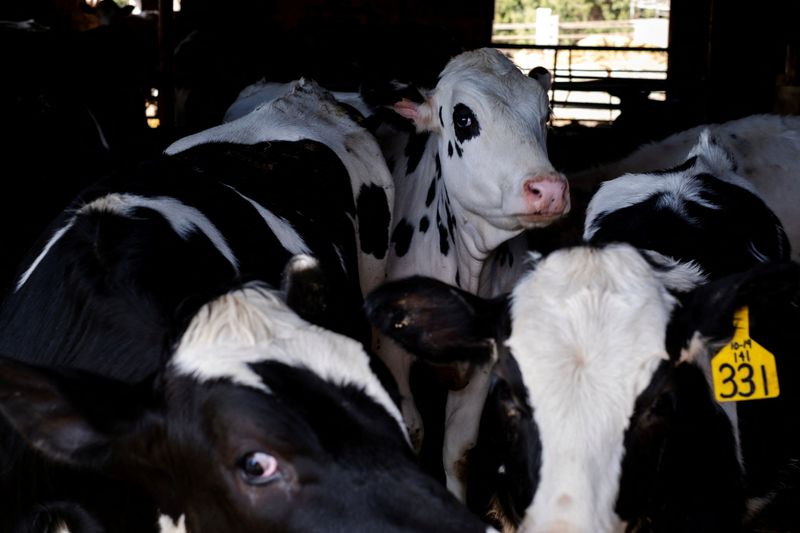By Jennifer Rigby
LONDON (Reuters) -The bird flu strain found in cows in the United States is not easily transmitted through the air among ferrets, a new study shows, although the scientist who led the work said it had shown some ability to spread this way.
Ferrets are considered to be the best small mammal for studying influenza virus infection and transmission, and are often used to inform assessments of the public health risks of emerging viruses.
In the experiment led by researchers at the University of Wisconsin-Madison, ferrets infected with a sample of the H5N1 bird flu strain were placed near healthy animals, but not close enough for physical contact.
None of the four healthy ferrets exposed in this way became ill and no virus was recovered from them during the study.
However, one of the ferrets produced antibodies to the virus, the researchers later found, suggesting it had been infected.
"It is good news that the virus does not have extensive transmissibility between ferrets through the air, but it is concerning that it has the ability to transmit (at all in this way)," said study author and flu virologist Yoshihiro Kawaoka.
A virus that can spread easily through the air between humans would pose a greater pandemic threat than H5N1 currently does.
That risk is assessed by public health agencies worldwide as low, as there is no evidence of any human-to-human transmission.
Four human cases, all dairy workers, have been reported in the U.S. since avian flu was confirmed in dairy cows in March. All four people have recovered.
The study, published on Monday in Nature, also showed the bird flu virus in cows can bind to human-type receptors under lab conditions. These receptors are how flu viruses typically enter and infect human cells in the real world.
Bird flu prefers to bind to avian-type receptors only, which are scarce in humans. The lab results need further study to assess their real-world implications, scientists said, as in the past flu viruses that developed the ability to bind to both types have caused human pandemics.
Scientists have so far suspected the virus spreads among animals and humans through contact with infected milk or aerosolized milk droplets, or from exposure to infected birds or poultry.
The study also confirmed that the virus, isolated from the milk of an infected cow in New Mexico, made both mice and ferrets sick after exposure to the unpasteurized milk.
It also spread through the body to muscles and mammary glands in infected mice, as it appears to do in cows.
Angela Rasmussen, a virologist at the University of Saskatchewan in Canada, said it was a relief to see the virus had not yet acquired the capability to cause a human pandemic, but this did not mean it would never do so, particularly if the spread among cows goes unchecked.

"It's always better to stop a pandemic before it starts than to respond to it once it has started. We should heed this warning and take action now," she said via email.
The study was funded by the National Institute of Allergy and Infectious Diseases (NIAID), part of the National Institutes of Health in the U.S.